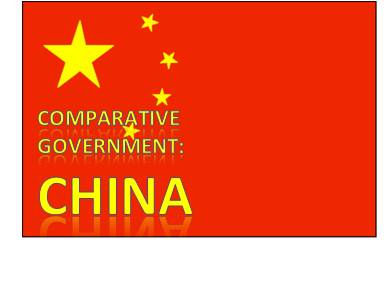
In a recent Economist article titled "Invisible and Heavy Schackles," the author wrote about the registration system, which prevents people from easily moving. There are many people in China who have migrated from the countryside to the city, who are not considered citizens.
Because of the way the classification system works, "on a hereditary basis," the registration system may label citizens incorrectly based on the work they do. The system was created to keep rural migrants from moving into cities, because Mao said that vagrants "lack constructive qualities." However, this concept has been reversed due to the rapid industrialization. The people once confined to the rural districts were necessary labor for factories.
Even though migrants are no longer stopped, they still do not have access to the social services they need. It not only prevents people from rural areas from having "access to education, health care and housing compensation payouts," but it also hampers those who migrate from one city to another. The regulation that allowed "police to detain people and deport them to their home towns," was only removed in 2003 after police beat a college-educated man to death because he didn't have the correct identification papers.
The reason the reform hasn't already come is that it would "have a huge impact on crucial aspects of the economy," including "land ownership" and "public services." Reform would also have social implications, as citizens of cities already dislike the idea of rural children sharing classrooms with urban children. The prices for going to school are not different based on class, but the percentage it takes from the income of the families is. There is no system to make people pay equally, the rich get off easy, while the poor suffer. This system has the effect of nearly requiring rural students to stay in rural areas so that they are able to learn properly.
The system had another glaring issue "until the late 1990s," the entire system was matriarchal, while every other system in China seems to be patriarchal. Children were limited by where their mothers grew up, even if their father's entire family was from a different location. The reforms are coming slowly, and it is nearly impossible to change classifications. The change requires either graduation from a school most can't get into, or "seven years' work--along with the required tax and social security payments."
The current system does have its benefits for some. The one child policy is not as important in the countryside, so some families have two children, and what is essentially health insurance is cheaper.
The majority of this issue relates mainly to human rights issues. Where people live determines what they can have, so rural residents, whether or not they live in rural areas, are allowed less than urban residents. This mainly presents itself in two places, education and healthcare, which are two of the UN rights of children, which are typically only infringed in poorer parts of rural Africa.
This issue also relates to government legitimacy in that it shows that the government is not doing an effective job in giving citizens access to the rights already guaranteed to them, without a significant amount of hassle. The government is also slow to reform the system, and suppressing complaints against it rather than reacting in a way that will not harm its subjects.
Grade This Post.







No comments:
Post a Comment